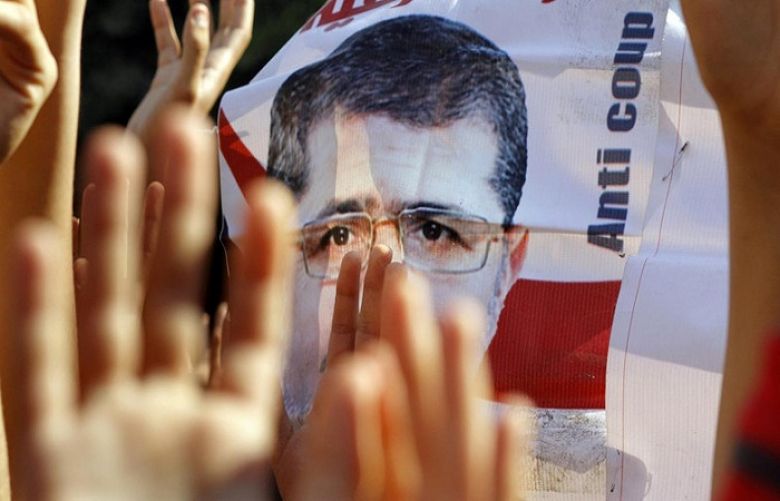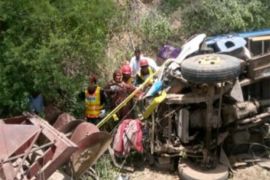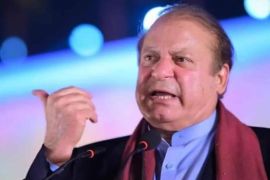Calls for massive rallies on November 11 have been flooding social media for the past couple of weeks. Little is known about the organizers of the event that came to be called “revolution of the disenfranchised”. All we know is it is a movement called “Ghalaba,” Arabic for “disenfranchised” but many expect the Muslim Brotherhood to be behind it in one way or another. Nobody knows the reason for choosing 11/11, but some say because the total of “1”s refers to the four-fingered gesture that emerged following the dispersal in August 2013 of the Rabaa Islamist sit-in.
Nothing is known yet, except the trigger being Egypt’s deteriorating economic conditions, mainly manifested in the shortage of several basic commodities and the devaluation of the Egyptian pound against the dollar. In the midst of all this uncertainty, however, speculation tends to focus on whether the protests will materialize in the first place and if they do, what impact, if any, they are expected to have.
Writer and former police officer Mohamed Mahfouz argued that while Egyptians have every reason to stage a protest, they will not respond to the 11/11 call. In this regard, he divided Egyptians into two main categories: un-politicized average citizens and political activists. “Egyptians who belong to the first group are indignant at failed policies and lack of reform and the deteriorating conditions they live in as a result, but they are restricted by the possible chaos that might follow any protests at the moment,” he wrote, adding that they’d rather cope with their conditions than risk making them worse.
Members of the second group, Mahfouz added, are mainly activists and partisans, who have more concerns than the first group. “In addition to their growing frustration with the economic situation, they also see a remarkable decline in rights and freedoms and they definitely see a change in the political scene necessary,” he explained. “However, they are uncertain what to do if the regime is toppled because they cannot afford to inherit its failures.” For Mahfouz, since the most important participants in a new revolution will not take part, no revolution is expected to happen.
Expert on Islamic movements Sameh Eid argued that most Egyptians will simply not take part in the 11/11 protest because of its association with the Muslim Brotherhood. “Even if some people have a reason to protest, they wouldn’t want to be put in the same basket with the Muslim Brotherhood,” he said. “They know that the Muslim Brotherhood will take advantage of their grievances to serve their own interests.” Eid particularly referred to an article written by Brotherhood member Khalil al-Gebali entitled “Will the Muslim Brotherhood take part in the 11/11 protests?” and in which he confirmed that the group will play an active part on that day: “This article was enough to make people decide against joining the protests.”
Eid also added that the Brotherhood would want as many people as possible to take part in the protests so that they can melt into the crowds. “They will never take the risk of leading the protests on their own,” he explained. Former Jihad leading member Sheikh Amal Abdel Wahab expected the Muslim Brotherhood to change their plans for 11/11 following Donald Trump’s victory in the US presidential elections. “They were counting on Hillary Clinton’s victory because she supports them and was expected to continue Obama’s policies towards them,” he said. “But now that Trump won, they might not go ahead with 11/11 in the first place.”
A number of MPs rejected the 11/11 protests for a variety of reasons. Suzy Nashed, also member of the Constitutional and Legislative Committee at the House of Representatives, said that protests are usually linked to demands, which is not the case with 11/11. “Usually these demands are put forward first since they might be met or negotiated, thus protests become no longer necessary,” she said. Nashed also added that protestors who will take to the streets on 11/11 will be taking a risk if they do not obtain a permit.
“Protesting is a constitutional right, but doing so without a permit is against the law, so security forces will have to interfere.” MP Mohamed Abu Hamed said that calls for 11/11 protestors were initiated by the Muslim Brotherhood and the Revolutionary Socialists Movement. “They both aim at compromising Egypt’s national security and dragging the country back to the pre-June 30 chaos,” he said. “And they are taking advantage of the current economic conditions in order to instigate the people into protesting.”
For journalist Ahmed al-Sawy, the state or entities loyal to it might have played a role in blowing the whole 11/11 issue out of proportion or even making it up altogether. “All the warnings of the calls for 11/11 were conveyed through official, semi-official, or pro-state media outlets while elsewhere very little information was available about the protests,” he wrote. Sawy noted that November 11 comes one week after drastic economic decisions that are bound to affect not only the poor, but also a large segment of the middle class, which provides reason for protests.
“The state could have expected that protests would take place as a result of those decisions so it decided to stigmatize any protest through linking it to the Muslim Brotherhood, thus discouraging the people from taking to the streets even if they initially wanted to,” he explained. “The state wanted to scare people away from protesting.” According to Sawy, in case of making drastic decisions, the state is always left with only two approaches in dealing with an angry public—dialogue or intimidation: “Since the Egyptian state is not really good at the first, it must have opted for the second.”







